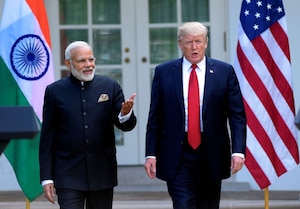RBI Monetary Policy Review Today Amid Concerns Of Omicron Variant. Know What To Expect
Going by the Reuters poll of economists, the RBI will hold rates for the ninth time and hike its reverse repo rate early next year and increase repo rate the following quarter

New Delhi: The Reserve Bank of India (RBI) is expected to hold benchmark interest rates in the successive monetary policy review on Wednesday amid concerns over new coronavirus variant Omicron.
The three-day monetary policy committee meeting of the central bank began early this week and going by the Reuters poll of economists, the RBI will hold rates for the ninth time and hike its reverse repo rate early next year and increase repo rate the following quarter.
ALSO READ: Omicron Covid Variant 'Almost Certainly' Not More Severe Than Delta: Top US Scientist Anthony Fauci
Even as the RBI is expected to maintain status quo on the interest rate policy, investors will keep a close watch on the announcement to get direction. RBI governor Shaktikanta Das is scheduled to announce the MPC’s decision through a webcast at 10 am. in Mumbai on Wednesday.
Here’s what to expect in the RBI monetary policy review
A Reuters poll of 50 economists showed the RBI would hold its benchmark interest rate at 4 per cent and the reverse repo rate at 3.35 per cent , as per news agency Reuters. RBI can take comfort from the fact that retail inflation, which it takes into account when deciding on policy rates, has been within the 2 per cent-6 per cent target range since July.
"We were previously expecting the RBI to hike the reverse repo rate 15-20 bps in December, but given the uncertainty emerging from the new Covid-19 variant, we now expect status quo," Morgan Stanley economists wrote.
Meanwhile, 28 economists surveyed by Bloomberg as of Monday expect the six-member monetary policy committee to leave the repurchase rate unchanged at 4 per cent.
Traders will depend on the cue regarding the inevitable return of policy to pre-pandemic settings, with markets pricing in a two-stage hike in the reverse repo rate, starting Wednesday. Only seven of the 24 economists surveyed see that happening, with others predicting no change.
On the inflation front, RBI governor has repeatedly described it as transitory, is once again on the march toward the upper end of the RBI’s 2 per cent- 6 per cent target range. The increasing vegetable prices, especially tomatoes, and a waning favorable base effect may threaten the central bank’s forecast of 5.3 per cent headline price-growth for the fiscal year ending March.
Concerns over price pressures would remain a subject of concernn, especially in the backdrop of Federal Reserve Chairman Jerome Powell’s comments that it was time the Fed retired the description of high inflation as “transitory." But that alone may not be enough to nudge Indian policy makers into action just yet, as per Bloomberg.
Five of the six MPC members were, as of October, still in favor of keeping policy stance accommodative to ward off risks from global developments. With the omicron variant spreading fast, it could be just the reason the RBI needs to stand pat.
As of now, the RBI is expected to retain its growth forecast at 9.5 per cent for the fiscal year ending March, while flagging downside risks.
Related Video
Union Budget 2025: Arvind Kejriwal lists the shortcomings of the Modi government's budget | ABP News | AAP







































